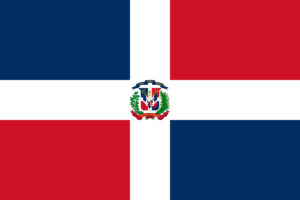
Region: Americas
Disability Definition
Dominican law no. 5-13 on Organic Equal Rights of Persons with Disabilities (2013) defines disability as “An umbrella term that includes deficits, limitations in activity, and restrictions on participation. Indicates the negative aspects of the interaction between an individual with a deficiency and its contextual factors (environmental factors and personal).”
Legislation
In 2013, the Law on Equal Rights of Persons with Disabilities 5-13 was approved. There is no official certificate of disability. However, the Regulation of Law 5-13 provides for the implementation of a system of National System of Assessment, Certification and Continuous Registration of Disability, which was to be implemented across the country in December 2019.
The DR ratified the United Nations Convention on the Rights of Persons with Disabilities (CRPD) on August 18, 2009.
Employer Legal Requirements
Article 14 of the Organic Act on Equal Rights of Persons with Disabilities No. 5-13 provides for employment quotas of 5 percent in the public sector and 2 percent in the private sector.
Accessibility Requirements
According to a 2020 Human Rights report: “[The Law] specifies that each ministry should collaborate with the National Disability Council to implement [accessibility requirements]. Authorities worked to enforce these provisions, but a gap in implementation persisted. Very few public buildings were fully accessible. … The law states the government should provide access to the labor market and to cultural, recreational, and religious activities for persons with disabilities, but the law was not consistently enforced.”
Reference: DOMINICAN REPUBLIC 2020 HUMAN RIGHTS REPORT (state.gov)
Cultural Norms
A 2015 report by the United Nations Human Rights Office of the High Commissioner outlines the difficulties in all realms faced by persons with disabilities in the Dominican Republic. According to this report, the Dominican Republic does not have adequate educational accommodations, and children with disabilities are often encouraged not to attend school if their disability is severe enough to prevent them from navigating a school environment designed for able-bodied children.
The healthcare system also lacks an adequate framework to accommodate people with disabilities, and few efforts exist to educate healthcare providers on the challenges that people with disabilities face.
People with disabilities are underrepresented in workplaces in the Dominican Republic because the country lacks a legal framework to penalize employers for discrimination or to incentivize accommodation efforts.
Business Practices/Examples
Additional content coming soon.
Insights
In accordance with the last Census on Population and Residence 2010, 12.3% of the total population lives with some form of disability in the Dominican Republic. This constituted a total of 1,160,847 persons.
1 in 8 people in the Dominican Republic lives with a disability.
According to the Report on the “Rights of persons with a disability in the Dominican Republic,” one of the major limits faced by people with disabilities is their ability, or inability, to integrate into the labor market, despite the fact that most are of the age to be economically productive and therefore are excluded from the country’s economic production. Their exclusion from the formal labor market means that many people with disabilities are incorporated into the informal market, or are relegated to begging.
Of the 708,000 people with disabilities reported by ENHOGAR 2013, only 254,000 declare themselves as labor-active. This is approximately 36% of the population.
56% of people with disabilities aged 18 or older are unemployed.
Reference: The ONE and CONADIS presented census data on people with disabilities in the Dominican Republic
Supplier Diversity
Currently, Disability-Owned Business Enterprises are not available in this country. Disability:IN provides the information below on currently known supplier diversity activities in the country.
Certification is in place for women-owned business enterprises (WeConnect).
Certification or Business Network is in place for LGBT-owned enterprises (NGLCC Network: Cámara de Comercio LGBT de la República Dominicana (CCLGBTRD)).
Talent Sourcing Resources
Conadis RD is the National Council on Disability. Conadis RD guarantee equal rights, equal opportunities and the elimination of all forms of discrimination towards people with disabilities. Conadis RD operates a Workforce Inclusion Initiative and RD Includes, a certification program. Learn more about the Conadis RD workforce initiatives here.
La RED is a union of organizations of people with physical disabilities, with the particularity that we are the people with disabilities who form the organizations. With funding support, LaRED operates an orientation and job placement service.
Additional Resources
Gissell Eusebio Life Transformer Foundation provides individuals with disabilities with the tools to go from victimization to empowerment, including a focus on productivity and self-advocacy.
Fundación Cuidado Infantil Dominicano is the Dominican Republic representative to Inclusion International, an international network of people with intellectual disabilities and their families.
The Government’s Technical and Vocational Training Institute (INFOTEP) provides training to persons with disabilities throughout the country.
Asociación de Personas con Discapacidad Física Motora – ASODIFIMO
Asociación Nacional de Sordos de la Republica Dominicana.
References
National Network for the Rights of Persons with Disabilities in the Dominican Republic
United Nations Human Rights Office: Rights of Persons with Disabilities in the Dominican Republic
